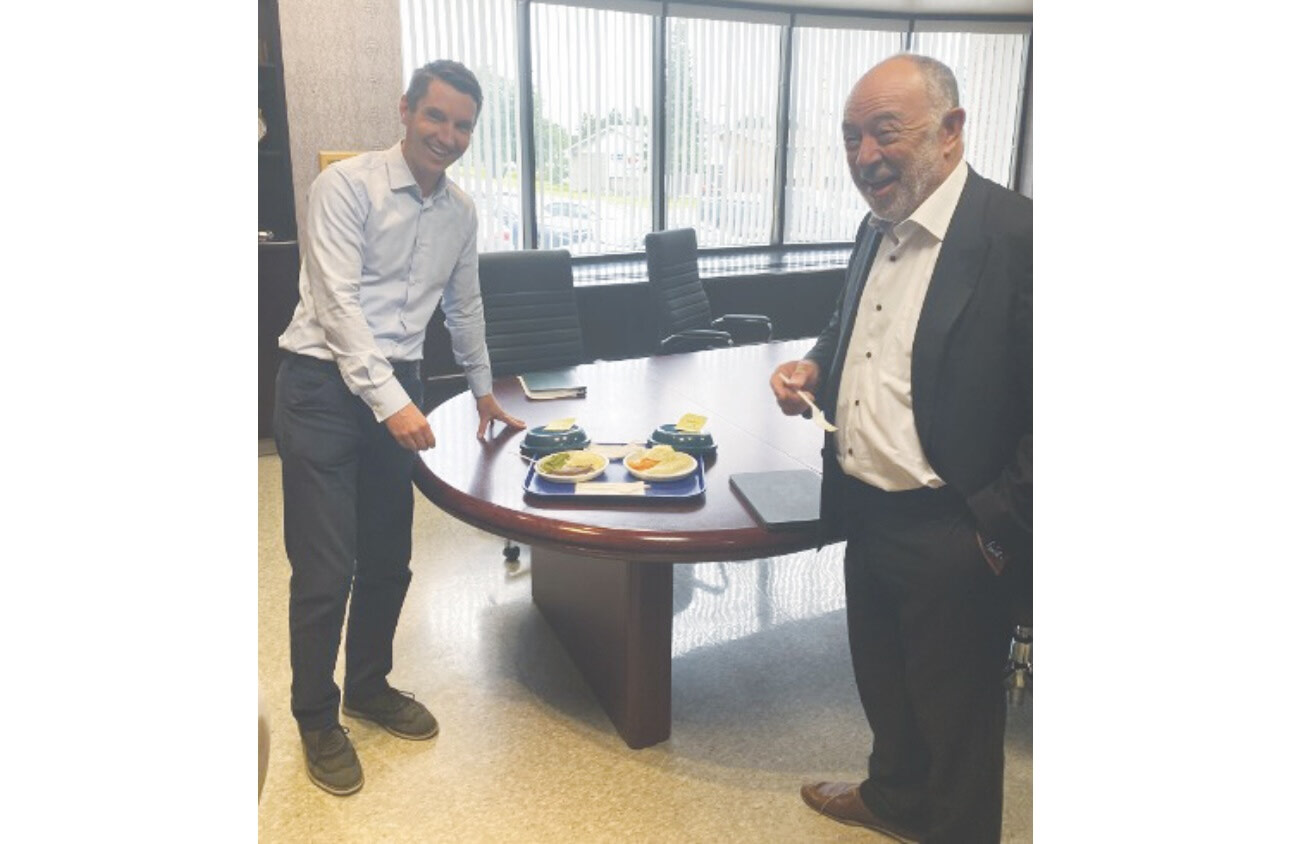Health Minister Dubé visits Pontiac Hospital discusses healthcare challenges
Tashi Farmilo
In a surprise visit to Pontiac Hospital, Quebec’s Health Minister Christian Dubé met with key local figures to discuss the pressing healthcare challenges in the region. Among those present were Nicole Boucher Larivière, CISSSO President Dr. Marc Bilodeau, and Pontiac MNA André Fortin.
Dubé’s visit was focused on understanding the unique difficulties faced by healthcare providers and patients in the Pontiac region. The discussions highlighted several critical issues, including the challenges of attracting and retaining healthcare professionals, the accessibility of surgical services in rural areas, and the impact of the region's proximity to Ontario on the local healthcare system.
Nicole Boucher Larivière, who has been vocal about the difficulties in the region, expressed cautious optimism following the meeting. "It was refreshing to see Minister Dubé take the time to come to the Pontiac and see firsthand the realities we face," said Larivière. "We discussed the urgent need for better recruitment strategies and the importance of keeping essential services running at all times. The minister seemed to grasp the severity of our situation, but we need to see action soon."
During the meeting, Larivière underscored four key issues that she believes are crucial for the region's healthcare system:
- Proximity to Ontario Hospitals: Larivière pointed out that there are four Ontario hospitals—Arnprior, Renfrew, Pembroke, and Deep River—located near the Pontiac area. This proximity creates challenges in retaining healthcare professionals, as they have the option to work across the border. Larivière stressed the need for the minister to understand the geographic and competitive pressures faced by local hospitals.
- Staffing Challenges: Recruiting bilingual staff is a significant hurdle in the Pontiac, where many healthcare workers must be fluent in both French and English. Larivière highlighted that this requirement adds an additional layer of difficulty to an already challenging recruitment environment, exacerbated by the ease with which Ontario hospitals can attract staff.
- Barriers for Out-of-Province Nurses: Larivière expressed concern over the stringent requirements for nurses from other provinces to work in Quebec. Unlike Ontario, where it is easier for Quebec nurses to cross the border and work, Quebec requires out-of-province nurses to pass competency exams, which deters many from seeking employment in the region.
- Maintaining Essential Services: Given the vast and dispersed population of the Pontiac, Larivière underscored the critical need to maintain essential services, such as emergency rooms and diagnostic imaging, within the region. She stressed that for many residents, "local" already means an hour's drive, making it imperative that these services remain accessible.
The visit also included a lighter moment when Minister Dubé sampled a plate of pureed food, a new initiative by the hospital to improve meal presentation for patients on special diets. "The kitchen staff were thrilled that he took the time to try it," said Larivière. "It's a small gesture, but it meant a lot to our team."
André Fortin, who has been a strong advocate for healthcare improvements in the region, also shared his thoughts on the visit. "While I appreciate the minister's visit and his willingness to listen, the time for talking is over," said Fortin. "The Pontiac region has been neglected for far too long, and we need immediate action. Our healthcare workers are stretched thin, and our patients deserve better. I will continue to push for concrete changes, including addressing the pay disparity between Quebec and Ontario healthcare workers, which Minister Dubé himself promised to fix during the election campaign."
Fortin highlighted the need for urgent reforms to ensure that residents of the Pontiac receive the same level of healthcare services as those in urban areas. "Our people pay taxes just like everyone else in Quebec, and they deserve the same quality of care. It's time for the government to act."
In a statement provided by the Health Minister’s office, Dubé commented on the visit: "We have had the opportunity to visit and speak with the healthcare staff in the Outaouais over the last few days, as we did earlier this summer on the Côte-Nord and in Abitibi-Témiscamingue. These are three regions where the situation is particularly challenging at the moment. The goal of these visits was to listen to the teams on the ground and meet with health partners, including unions. Already, our teams and those at Santé Québec are managing the priority issues identified, particularly in accelerating discussions on the allocation of regional attraction and retention funds as outlined in the recently signed collective agreements."






